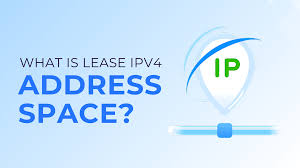The demand for IPv4 addresses continues to grow, even as the world slowly moves toward IPv6. Delays in the complete transition to IPv6 have kept IPv4 relevant and valuable, especially for businesses that rely on stable online services. With the limited supply of IPv4 addresses, many companies are now choosing to lease them instead of buying, offering flexibility and cost savings. This guide is helpful for businesses, internet service providers (ISPs), and hosting companies looking to understand how to lease IPv4 address space and why it might be the smarter choice in today’s digital landscape.
Understanding Lease IPv4 Address Space
The leasing of IPv4 address space refers to the renting of IP addresses, rather than purchasing them. This alternative provides even greater freedom to businesses since IPv4 addresses are becoming increasingly more difficult to find and even costly to acquire. The companies may lease the network capacity. They can increase or decrease it as they need, without an obligation to invest in it long term or pay a significant initial investment.
It is an easy way out for startups, expanding companies, ISPs, and hosting organizations that require the stable availability of IP resources. With leasing, there is also constant service and maintenance on the part of the provider, thus taking away the technical load.
Due to increased demand, renting IPv4 is now an intelligent and effective response to the question of how to stay in touch. It helps to stay competitive as the digital world dynamic expands rapidly.
Major Reasons to Lease IPv4 Address Space
1. IPv4 Address Exhaustion
The overall supply to buy IPv4 address in the world is almost exhausted. The traditional methods of acquiring enough addresses have proved to be a challenge to an organization. The immediate scalable solution to this is leasing IPv4 addresses. This is a viable concept for startups and growing businesses that have an increased need for connectivity.
2. Cost Efficiency
Leasing is way cheaper compared to purchase IPv4 addresses. There is no huge capital investment, and it allows scaling up or down whenever necessary. Leasing is a more economic option for companies because they only pay for what they consume. Hence, this would help in the management of operational costs.
3. Reduced Management Overhead
When buying IPv4 space, it would be necessary to have a long-term administration, legal paperwork, as well as registry management. Leasing relieves a lot of this load on the provider, leaving the IT teams to do their usual activities. Maintenance and compliance services provided by managed leasing services usually make address space management much more convenient.
4. Global Availability and Access
Through leasing, it is also possible to get access to blocks of IPv4 addresses which belong to various geographical locations. This may prove very essential to businesses that are moving to internationalization. This contributes to the minimization of latency, the improvement of geolocation precision, and the content delivery plans. International leasing alliances are available as well, rather than attempting to dig up addresses within narrower domestic sources.
Who Should Lease IPv4 Address Space?
The idea to lease IPv4 address is suitable for growing businesses, cloud service providers, ISPs and data centres. All these sectors require additional IP resources to be leased without investing heavily up front. It is also ideal when a new company wants to grow rapidly, or an old company wants to access a new market.
Leasing is flexible, cost-effective and does not make demands; it either meets short or long-term requirements. When network requirements are increasing and you cannot afford to purchase IPs, then leasing will be the intelligent thing to do. It provides a predictable connection without going through the headache of ownership.
In simpler terms, it is a viable option in terms of being a business operating in the modern world of digital-first approaches.
Facing Common Risks and How to Handle Them
You should never use untrusted platforms to prevent the issue of reputation and blacklisting your IP. Use well-articulated contracts that include all the responsibilities and make everything as well-documented as possible.
Make sure that reverse DNS is set up and abuse handling procedures are present. Seek a legititeness issues Letter of Authorization (LOA) as required. A clean IP reputation can be secured by monitoring and addressing any complaints on a regular basis in a speedy manner.
Keeping in advance and selecting trustworthy partners, it is possible to overcome the risks and address the problems in the shortest time. Communication and responsibilities are essential to ensure that your IP is secure and that your operations proceed without trouble.
Unlock Growth with IPv4 TradeHub: Lease Smarter, Scale Faster!
Ready to expand your network or launch new services without the massive cost of buying IPs? IPV4 TradeHub connects you with clean, verified IPv4 blocks on flexible lease terms, perfect for ISPs, hosting providers, and enterprise networks. With expert support, blacklist-free IPs, and full RIR compliance, your IPv4 strategy is in safe hands.
